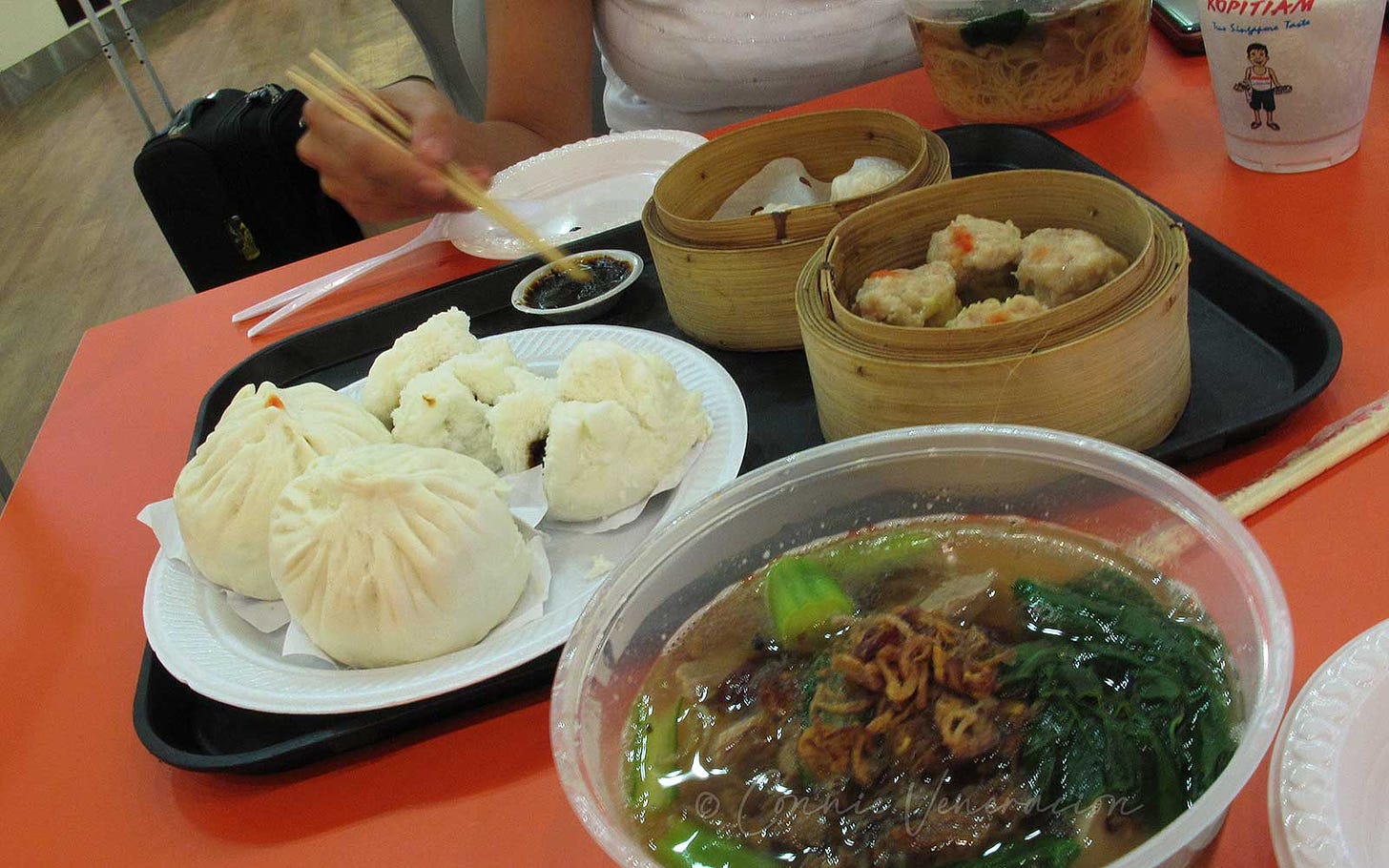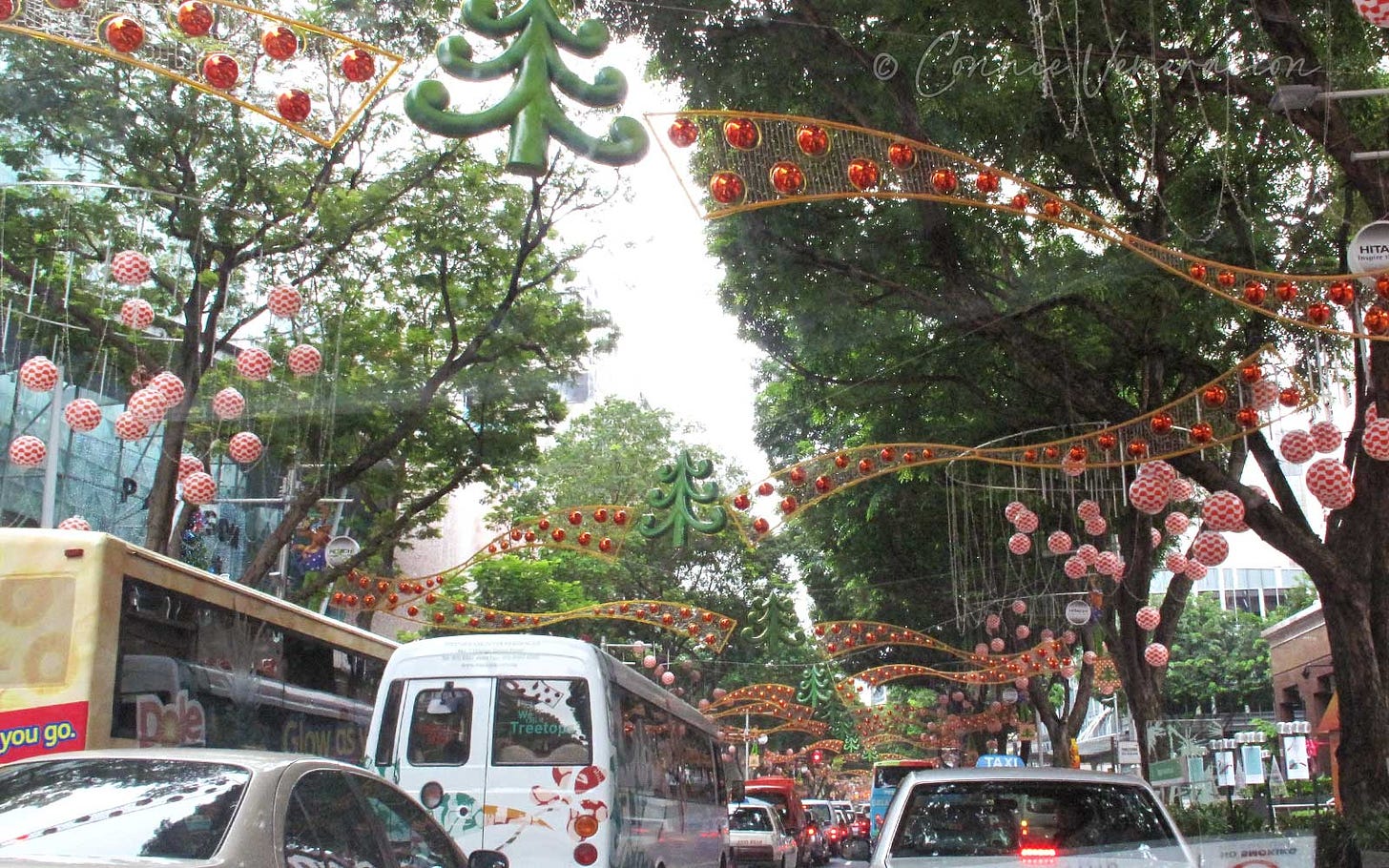When you walk the streets of Singapore, prowl the malls or ride in the train, it isn’t unusual to overhear conversations in Filipino. There are, after all, about a hundred thousand Filipinos in Singapore.
So many, in fact, that inside the Lucky Plaza along Orchard Road, one finds many shops and services that cater to Filipinos. Kabayan Restaurant listskare-kare,daing na bangusandlumpiang sariwaamong its specialties; Hagibis Express offers “padala” services; Nayong Pilipino Minimart sells Growers peanuts,chicharonandbarquillos.
One of these hundred thousand or so Filipinos living in Singapore is Malou, a long time reader who resides there with her engineer husband and their four children. We met up with her, she showed us around, we ate, had coffee, talked and talked some more. And the stories she shared gave us an insight that no travel book, magazine or television documentary can.
Singapore, Malou said, is a place where a parent need not worry about teenaged children who stay out late at night. It’s a safe place – you can leave your things on a table in a restaurant while you order food at the counter and no one will touch your stuff. An amazing claim, really, especially for someone like me who grew up in Metro Manila with that instinctive reaction never to let bag nor child nor any belonging out of sight lest they disappear with the blink of an eye.
But Malou wasn’t exaggerating. Nine days after that conversation, at the Changi Airport while waiting to board the plane that would fly us back to Manila, I left a book (where my boarding pass was inserted) on the counter of a dimsum stall. I had forgotten all about it until it was nearly boarding time and I was looking for my boarding pass.
I ran back to the dimsum counter, I asked the attendant if she had seen the book and she pointed to an airport employee to whom she had handed it. The airport employee told me that the book had been brought to Gate 10 where we would board the plane. Apparently, someone had seen the boarding pass peeping through the pages of the book, noted the flight number and dispatched the book with the boarding pass to their most logical destination. And it was at Gate 10 where I was able to catch up with Dan Brown’sThe Lost Symboland my boarding pass. Had the incident taken place anywhere in Metro Manila, I doubt if I would have seen my book again.
Of course, it has a lot to do with poverty. Singapore’s population is much more affluent and petty thefts would be irrational since most of the people there can afford to buy a hardcover copy of Dan Brown’s latest thriller – so why bother stealing?
It’s very different among the poverty-stricken here at home. Just last Sunday, we were driving from Caloocan to Manila along C-3 road and I had totally forgotten that Manny Villar was going to hold some rind of rally in the area. Traffic was bad and there wasn’t much to do except observe what was going on around us including a couple of teenaged boys who forcibly opened the toolbox of a truck (stalled in the snarled traffic like us) and emptied it. Did the driver go down and run after them? Are you kidding? In a place like that, he would have been beaten to a pulp by the associates of the thieves who are likely lurking somewhere near. Worse, had the driver left his truck, he might have lost it altogether including whatever cargo it was carrying.
But it isn’t just poverty that breeds petty crimes like that. It is the lack of effective law enforcement too. Malou told us about this young boy in Singapore, a Caucasian, who was caned for vandalism. The boy was Michael Fay and his caning became a cause celebre several years ago. Fay, along with several expatriate students from the Singapore American School, were charged with more than fifty counts of vandalism and stealing of road signs. Fay confessed, was sentenced to jail time, fine and six strokes of the cane. Appeal failed, the American government interceded, the caning was reduced to four strokes which were delivered at the Queenstown Remand Centre.
(Insert personal comments here about the American government’s position that the caning constituted excessive penalty and the very act of seeking to exempt its citizen from the coverage of the criminal laws of the country where he was residing. Compare that with the United State’s own policies about treatment of detained foreign nationals who have not even been accused of any specific crimes but are mere suspects.)
As harsh (excessive, by Western standards) as Singapore’s penal system may be, it seems to work. The streets are clean, there are no graffitis, people smoke only in designated areas, no one spits chewing gum on the pavement, taxi drivers don’t cheat passengers, drivers and pedestrians observe the rules (although I did witness two incidents of jaywalking and I did wonder if the culprits were Filipinos) and a long-time resident like Malou talks about not losing sleep when her teenaged children stay out late with friends. And I wonder for the nth time if our legal system, patterned after Western models, is attuned with our still largely very Asian culture.




